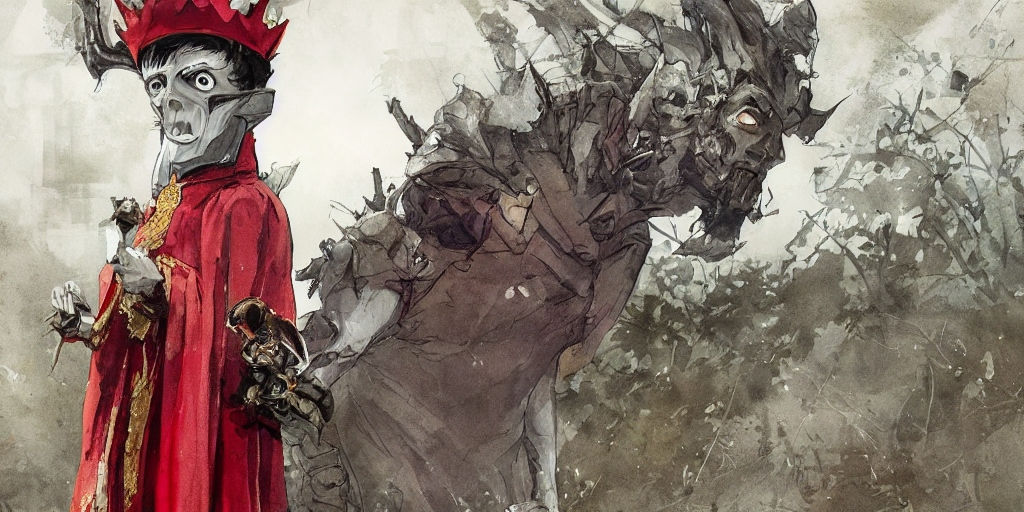Canada is known for its friendly people, stunning landscapes, and maple syrup. But did you know that the Great White North also has some seriously quirky laws on the books? Here are 10 weird (and hilarious) Canadian laws you probably didn’t know about, and some of them will definitely leave you scratching your head!
Rather watch the video? Just press play!
(1) It is illegal to pretend to practice witchcraft in Canada.
Yep, you read that right. It used to be illegal to pretend to practice witchcraft in Canada. Section 365 of the Criminal Code stated that anyone who fraudulently claimed to use witchcraft, sorcery, or other enchantments could be guilty of an offense. But hey, at least the actual use of magic was still legal! Thankfully, Parliament repealed this law in 2018, so now you can dress as your favorite Harry Potter character for Halloween without legal repercussions. Expelliarmus!
(2) It is illegal to challenge or accept a challenge to a duel in Canada.
In Canada, challenging someone to a duel was a big no-no. Section 71 of the Criminal Code stated that anyone who challenged or accepted a challenge to a duel could be guilty of an indictable offense, punishable by up to two years in prison. So, if you ever had a disagreement with someone, you couldn’t just settle it with a good ol’ fashioned sword fight. However, with the decline of dueling as a method of conflict resolution, Parliament decided to scrap this law in 2018.
(3) It is illegal to advertise an award for stolen and lost property which indicates no questions will be asked.
Advertising a reward for lost or stolen property without asking any questions was also illegal in Canada. Section 143 of the Criminal Code stated that anyone who publicly advertised such a reward could be guilty of an offense. It was a very odd law for which the only purpose could be to dissuade criminals from returning stolen property without having to be worried about criminal consequences. Fortunately, Parliament repealed this law in 2018, so now you can freely advertise your lost sock without worrying about breaking the law!
(4) It is illegal to falsely claim a royal warrant.
Falsely claiming that goods were made by a person holding a royal warrant was also against the law in Canada. Section 413 of the Criminal Code made it an offense to misrepresent that a product was used by a member of the royal family or a public department. Although there was never a recorded case of anyone being charged with this offense, Parliament decided to repeal this law in 2018. So, if you ever feel like putting a fake royal seal on your homemade jam, go ahead and spread the monarchy love!
(5) It is illegal to publish or sell comic books in Canada.
Believe it or not, there was a time when publishing or selling comic books in Canada was illegal. Section 163(b) of the Criminal Code made it an offense to make, print, publish, distribute, sell, or possess for the purpose of publication, distribution, or circulation a crime comic. This law was incredibly broad and covered virtually every comic book on the market. Thankfully, Parliament axed this law in 2018, so you can now enjoy your favorite superhero adventures without worrying about the comic police knocking on your door!
(6) It is illegal to scare the King in Canada.
Yes, you read that right. If you even think about pulling a “Boo!” on His Majesty in Canada, you could find yourself in some serious legal trouble. Section 49 of the Criminal Code makes it crystal clear that scaring the King is a big no-no. In fact, if you wilfully alarm His Majesty in any way, you could be charged with an indictable offence and face up to fourteen years in the slammer. So, if you ever happen to be in the presence of the King in Canada, keep your funny antics in check and resist the urge to give him a fright, unless you’re looking for a lengthy stay behind bars.
You’re the king? Well, I didn’t vote for you!
(7) It is illegal to make purchases using too many coins.
Got a pocketful of change and a craving for some poutine? Well, before you start counting out those pennies, dimes, and nickels, you should know that Canada’s Currency Act has some limits in place. You can use up to 25 pennies, 100 nickels, 100 dimes, 40 quarters, 25 loonies, and 20 toonies in a single transaction. Any more than that, and you might just see a vendor’s eyebrows raise as they kindly decline your mountain of coins. So, leave the piggy bank at home and stick to the legal limits, or risk being the “change” no one wants to see.
(8) It is illegal to scare a child or sick person to death in Canada.
We all know that jumping out and yelling “boo!” can be a good ol’ harmless prank. But in Canada, you better think twice before pulling that stunt on a child or a sick person. According to section 222(5)(d) of the Criminal Code, causing the death of a human being by wilfully frightening a child or sick person is considered culpable homicide. That means, if your Halloween costume or ghostly impersonation goes wrong and someone ends up kicking the bucket, you could be facing manslaughter charges. So, remember, scaring someone to death is no joke in Canada, unless you’re aiming for a cell with a not-so-spooky view.
(9) It is illegal to ridicule the Christian religion.
Section 296 of the Criminal Code used to state that publishing a blasphemous libel was an indictable offence, punishable by up to two years in jail. However, this law was finally repealed in 2018, as it was incompatible with the idea of secularism and the United Nations’ International Covenant on Civil and Political Rights. But before that, the last time someone was charged with this offense was way back in 1935 when Victor, a prankster from the Anglican Church of Canada, decided to poke fun at the Roman Catholic Church. So, let’s remember to always respect each other’s beliefs and keep our jokes in good taste.
(10) It is illegal to water ski at night in Canada.
If you’re a night owl who loves water sports, you might want to think twice before hitting the waves in Canada. According to section 250 of the Criminal Code, towing a person on water skis, surfboard, or any other object behind a vessel between one hour after sunset and sunrise is a summary conviction offense. That means you could face up to six months in jail and a hefty $5,000 fine for night-time water skiing adventures. So, unless you have some serious spotlights and a craving for legal trouble, it’s best to save your water skiing skills for the daylight hours in the Great White North.
In conclusion, Canada has its fair share of quirky and unusual laws that may leave you scratching your head. From obscure fishing regulations to outdated blasphemy laws, Canada’s legal system has seen its fair share of unique rules. While some of these laws may have been repealed over time, they serve as a reminder of the country’s evolving legal landscape and societal changes.
As with any legal matter, it’s important to familiarize yourself with the current laws and regulations in Canada, and always abide by them. Ignorance of the law is not an excuse, even if the law seems strange or outdated.
Remember, laws are in place to maintain order and protect the well-being of individuals and society as a whole. While some of these unusual laws in Canada may seem amusing, it’s crucial to respect and adhere to the legal system in any country you visit or reside in. When in doubt, it’s best to seek legal advice and follow the laws of the land. Happy exploring and stay law-abiding!


